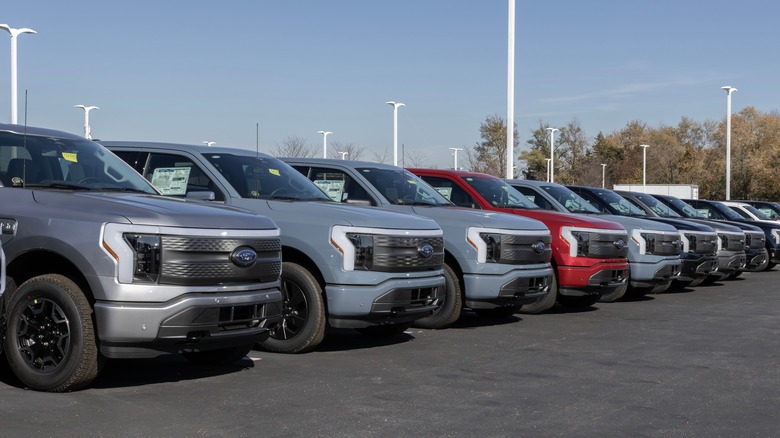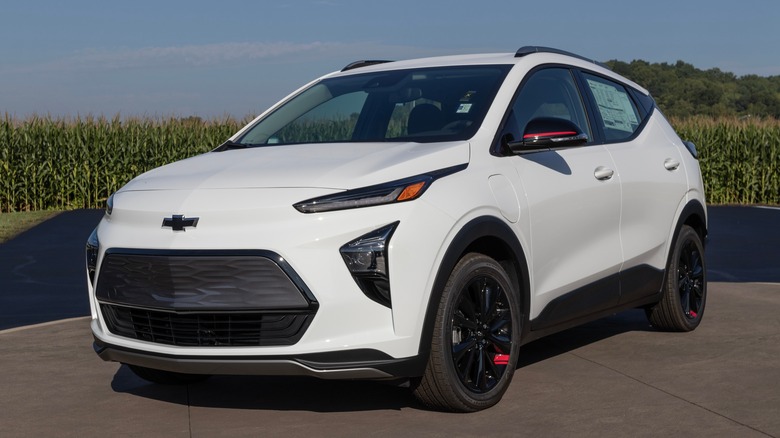
Jonathan Weiss/Shutterstock
By Eli Becht/
Automakers are constantly working to push the bar forward. Dr. Laine Mears, the Automotive Manufacturing Chair at Clemson University believes Ford and General Motors are the two companies to keep an eye on, and it’s because of the two paths he sees them going down.
With the electric vehicle trend growing, automakers are beginning to put more of an emphasis on producing EVs, but Ford isn’t pushing it as hard. In early 2024, Ford announced it was cutting back production of the F-150 Lightning due to less-than-expected demand. Ford looks to be focused more on hybrid engines.
Meanwhile, GM is pushing EVs. «GM is continuing to put heavy emphasis on EVs as a major part of its portfolio, with hybrids as a stepping stone (which I think is a smart
strategy),» he wrote. «Ford leans more toward a long-term play on hybrids, keeping them as a major part of their offerings rather than a transitional technology.»
GM has plans to have an entirely electric light-duty fleet by 2035, so even though the company has also put an emphasis on plug-in hybrids, it is acting more of a stepping stone to the forward as Mears says. GM in particular has had trouble selling its electric offerings as the Ultium platform has not proven to be a big needle mover as of yet.
Other manufacturers are joining Ford and GM

Jonathan Weiss/Shutterstock
While EVs are growing in popularity, it’s not going to be an overnight change from gas to electric. In 2022, EV sales surpassed 10 million for the first time, and 1.6 million EVs were sold in the U.S. in 2023, according to MarketWatch. There’s still a long way to go before they officially overtake gas-powered vehicles, and it appears Ford believes hybrids could help make the transition easier for consumers. Ford and GM are far from the only manufacturers looking for a piece of the pie, and BMW looks to be a major player after breaking ground on a battery assembly factory in 2023.
«Other OEMs are jumping into the EV pool with both feet – BMW in the past two years invested almost $2B in US operations to establish a battery manufacturing plant and upgrade their factory, and aims to ‘make the BMW Group electric,'» Mears said. «Look for some serious innovation and value coming from such investments. Competition will be fierce, and it is not yet clear what the market is ready for.»
The U.S. government has set a goal of making half of all new vehicles sold to have zero emissions by 2030, so it’s not surprising to see automakers ramping up production. As the vehicles become more accessible and affordable, the EV market will continue to grow. Nearly one in four cars sold in California in the first quarter of 2024 were EVs, but overall sales nationwide are slowing.